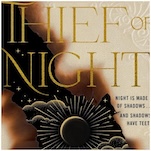Why Bran Stark Is Not Enough to Rescue Our Politics
Photo by Chip Somodevilla/Getty
Our audience is constantly renewing itself, The political times and the climate is changing. We’re always aware that whoever our audience is now, it doesn’t matter what matters we’ve told in the past—it’s going to be fresh for them. — Degrassi: Next Class co-creator Linda Schuyler
Nothing being proposed in politics is new. The sun shines all day, but never on a new idea. Every single notion of 2019—universal health care, an end to eternal war, reparations, cowardly centrism, a white ethnostate, war with Iran, a racist wall, democratic socialism, paper ballots, breaking up the banks—all of them have been discussed before.
We forget these discussions for several reasons. Mostly, it’s because “history” is an agreed-upon narrative of oversimplified half-truths. These half-truths are usually chosen because they favor the interests of the powerful.
But even when we write good history, that’s not enough. For history to serve a purpose, it has to be living, discussed, collectively-held history. History cannot be a storage locker where we put ideas until we need them again. Or it will be of use to nobody.
WHAT’S GOING ON
There’s a trope in fiction. It goes by many names: Nohamotyo, the Fleeting Demographic Rule, or, as one wiki puts it, “No One Has A Memory Over Two Years Old.” This rule held true in comics, professional wrestling—really, any medium where the demographic window is narrow, and, well, fleeting:
For example, during the Silver Age of comics, the writers assumed that their demographic was kids ages 9-11 — which would make a three-year turnover safe — and that their demographic rarely read comics frequently enough to notice the repetition. They also believed that even if they did read them often, they wouldn’t notice. This has been turned away from in recent times because comics are now written (and often read) by people who love continuity; if they make events repeat, then they’ll eventually come up with a metaplot to explain it. Also, the rise of the Internet has made it trivial to compare works that are years or decades apart, making it practically impossible for writers to pull this off unnoticed.
Politics runs along similar rails. In the sweaty olden days, statesmen bloviated from town to town like waves of smallpox. They’d come into the village square, listen for a while, blather publicly about whatever hot-button issue was currently setting the tavern on fire, make promises, and then move on to the next settlement.
They’d repeat the process in every town. A governor who was praised in one city would be denounced in the next. Likewise, an issue that was important in one city, one state, or one season might not last. But newspapers and television changed this. And when the Internet came along, we were off to the races. It became possible for small-town pedants to keep track of what their local politician had done, or said, or promised—ridiculously easy. In other words, politics got picked up by people who love continuity.
Just like comics. And the results were similar. Who has time for this consistency stuff when you’re trying to make a living? Politicians are human, and when confronted by contradictions in their record, they replied “I think, er, no, I mean, er, yes, but it’s all wrong.” And the politics-watchers smiled and said, “I think I disagree.”
A SHORT HISTORY OF BREAKING THROUGH
When ordinary people began watching politics and checking them against history, a funny thing happened. The American public began to understand that most breakthroughs are not, in fact, breakthroughs.
The idea of Universal Basic Income has been around for at least a century. It is important that UBI is being taken seriously. Once the idea has been seriously discussed in a public space, it gains a kind of legitimacy. Once it enters the national mind, repressing an idea is harder—the centrists and the New York Times can’t just ignore it. You could label the discussion around UBI a “breakthrough.” If you wanted.
But there’s a problem. What do we count as a “breakthrough?” It’s the first time someone or something or some idea makes an impact, right? But most of what we call breakthroughs are already part of the conversation. They’re known quantities.
Take Trump’s white nationalism. During Trump’s campaign, and during his administration, the center acted as if conservative racism it was something new.
Sure, the frank discussion of it was. A Republican presidential candidate had never been so obviously racist. But the institutionalization of racism is not new. It’s the very stuff America was built on. Trump’s white nationalism is the same white nationalism America has always had. Trump’s candidacy was a breakdown, not a breakthrough.
Take Bernie’s socialism. Leftist policies are wildly popular among the American public. Don’t take my word for it. The official social circular of the one percent, the Times, had an opinion piece about old-timey American socialist and presidential candidate Eugene V. Debs. Keep in mind this happened over a hundred years ago:
In 1912 he won nearly a million votes, some 6 percent of the total. Immigrant neighborhoods on the Lower East Side and in Milwaukee were not the only places to turn out for Debs. In some states, such as Washington and California, and most surprisingly, Oklahoma, the Socialist Party’s share of the vote climbed into the double digits. Over the same 12-year period, the party expanded its membership from 10,000 to nearly 120,000. Across the country, 1,200 Socialists won public office, including mayors from Flint, Mich., and Butte, Mont., to Berkeley, Calif.
Bernie isn’t even as left as Debs. He’s pitching an updated version of Roosevelt’s New Deal.
So what’s the deal? Why do we act as if this is new?
LIVING IS EASY WITH EYES CLOSED, MISUNDERSTANDING ALL YOU SEE
I can give you a superficial answer. The right wing shifted the Overton window in the 70s. They won, in other words. And one of the first things you do when you win is that you make your enemy’s ideas unpalatable. That’s part of pushing the window. Part of making your enemy’s ideas unpalatable is rewriting history. When you get into power, you use that power to repeat your version of history. You make sure the story you tell is the story that everyone tells.
This happens all of the time.
When the South won the Compromise of 1877, part of the settlement was that the North would agree to forget just how bad slavery had been. When the United States began to fight propaganda battles during the Cold War, part of the strategy was to deliberately ignore the Soviet Union’s central role in defeating Hitler.
Mostly, our forgetfulness has to do with how we think of history in America, when we think of it at all. Would we be so naive about American exceptionalism, if we knew how many mistakes those words had justified? Would anyone be scared of populism, if they understood how often the people had been right?
History is inherently political. Politics is not a science. Our major guide to political action is, you guessed it, history. It’s a record of what has, and hasn’t worked. This, by the way, is the same reason that books get burned when new regimes come in. Political positions are a selective reading, and sometimes a deliberate misunderstanding, of American history.
THE PROBLEM OF BRAN STARK
Which comes, by a roundabout way, to Bran Stark. I promised myself I would never do any political writing that tied back to Game of Thrones. But for once, the analogy is worthwhile.
In the show, Bran is a kind of emotionally dead wizard who can see the entire history of the fantasy nation of Westeros. In a very literal sense, he is the memory of mankind. For this reason, the Night King wants to kill him. Without our stories, what are we?
And here get to the real problem of Bran. There’s a bigger issue with the entire idea of Bran Stark, a problem that goes beyond magical powers and warging.
It’s strange, after all, that Bran is the supposed memory of Westeros. With a few obvious exceptions, Bran doesn’t talk much about the past. For the most part, he tells nobody about what he sees, and rarely talks to others about the past. In a world which is mostly oral—medieval—Bran tells nobody and writes no books. He is the avatar for a history that is untold, remembered somewhere, but useful to no living person.
America is living the Bran Stark problem right now. Oh, we have plenty of books about labor history. The Battle of Blair Mountain was the biggest uprising since the Civil War, and it was a miner’s strike. You can browse its Wikipedia page any time you like.
There are countless books about the depredations of capitalism, white supremacy, and sexism. There are widely-available official government documents about our wars of conquest. And like the memory of Bran Stark, our history lies there, mostly unused and untouched.
Therefore, friends, it is not enough to have a Bran Stark bear up the memory of the world. It is not enough for Wikipedia to exist, or for specialist historians to write insightful records. It is not enough to publish progressive books about marginalized history. We must have a historical memory which is living. A memory which is discussed. Our collective, public, group memory must live longer than two years. History is like money: it is a moral outrage to have it hoarded up, useful only to a few people.
We should write our history in the best two places to store memory: institutions, and the public mind. We know what we might become, but we know not yet what we are. Know ourselves, and we will know the world.







































